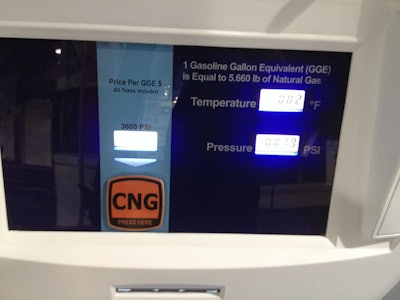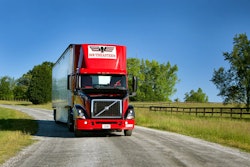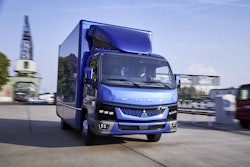
Sen. Bill Cassidy (R-La.) and Rep. Tim Ryan (D-Ohio) introduced a bill to their respective chambers Wednesday that would partially exclude alternative fuel trucks from the excise tax imposed on heavy-duty trucks sold at retail.
The tax code currently imposes a 12 percent excise tax on the sale of heavy-duty trucks. Cassidy said in a press release that alternative fuel trucks, such as natural gas-powered trucks, have a higher base cost or incremental cost than conventional trucks, and the 12 percent tax rate is assessed to the base cost as well as the incremental cost of the truck, more or less resulting in a penalty.
“The Federal Excise Tax is making it more expensive for businesses that want to buy cleaner, safer and more fuel efficient trucks that run on natural gas to do so,” Cassidy said. “Reducing this burdensome tax on alternative fuel trucks, to match taxes on conventional trucks, will encourage the use and production of domestic natural gas—benefitting Louisiana’s economy and workers.”
Cassidy added the higher tax payment increases the cost of natural gas trucks, extends the payback period for the trucks and makes it harder for companies to justify the initial purchase of natural gas trucks.
Ryan took a slightly different approach in his introduction of the bill, saying the reduction in excise tax will also help reduce greenhouse gas emissions.
“This month has been the hottest September in recorded history, and that has been the case for the past 11 months,” Ryan said. “Climate change is real, and we are seeing its effects firsthand. That is why I am introducing legislation to get greener trucks onto our roads. Natural gas fueled trucks will help reduce greenhouse gas emissions, decrease our dependence on foreign oil and move us eventually towards a future that runs on clean energy.”
The bill defines alternative fuel as “compressed natural gas, liquefied natural gas, liquefied petroleum gas, renewable natural gas, hydrogen and any liquid at least 85 percent of the volume of which consists of methanol.”
Engine manufacturer Cummins Westport weighed in on the introduction of the bill and outlined some benefits from higher natural gas utilization.
“Cummins Westport Inc. supports the introduction of this important legislation which, if enacted, would remove a significant barrier for our customers to choose clean natural-gas powered trucks,” the company said in a statement. “Greater utilization of natural gas among heavy-duty truck fleets means cleaner air, reduced greenhouse gas emissions and proven economic benefits that accrue across the supply chain at the local and state level.”












